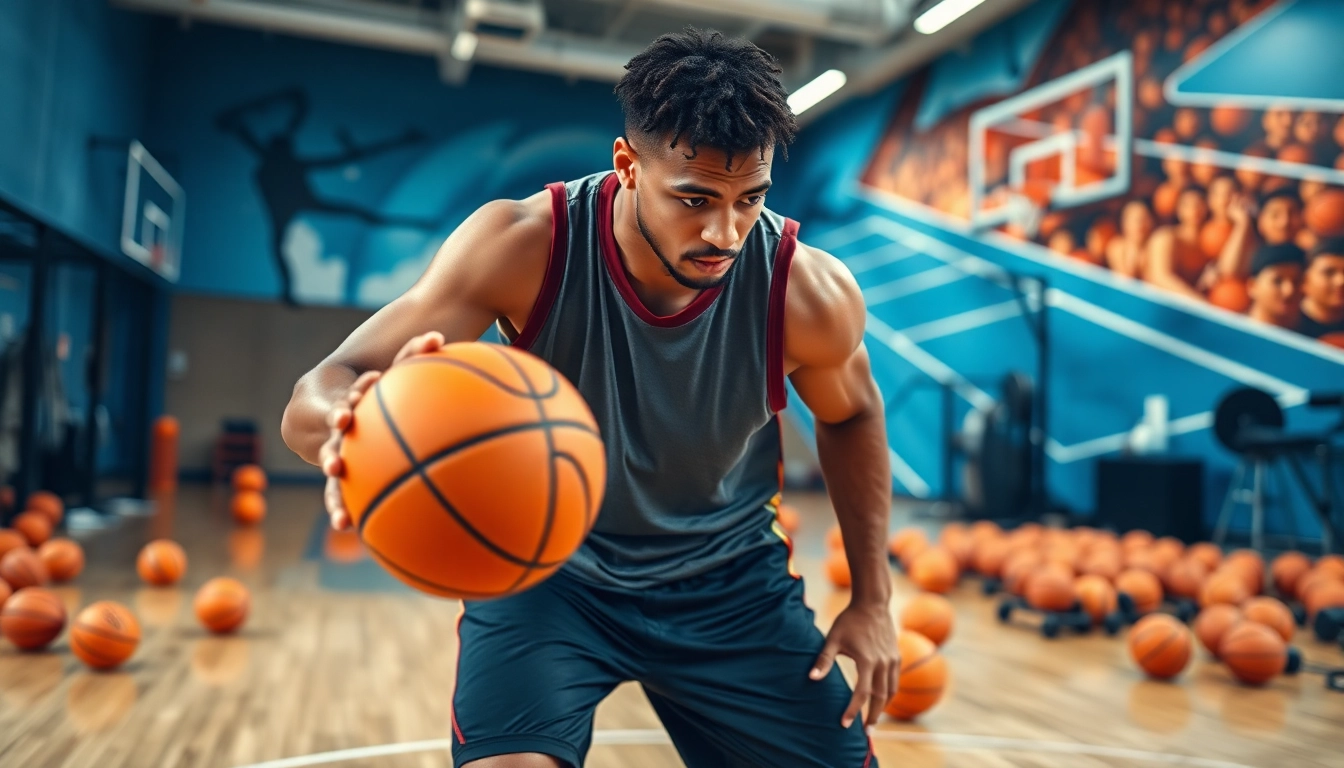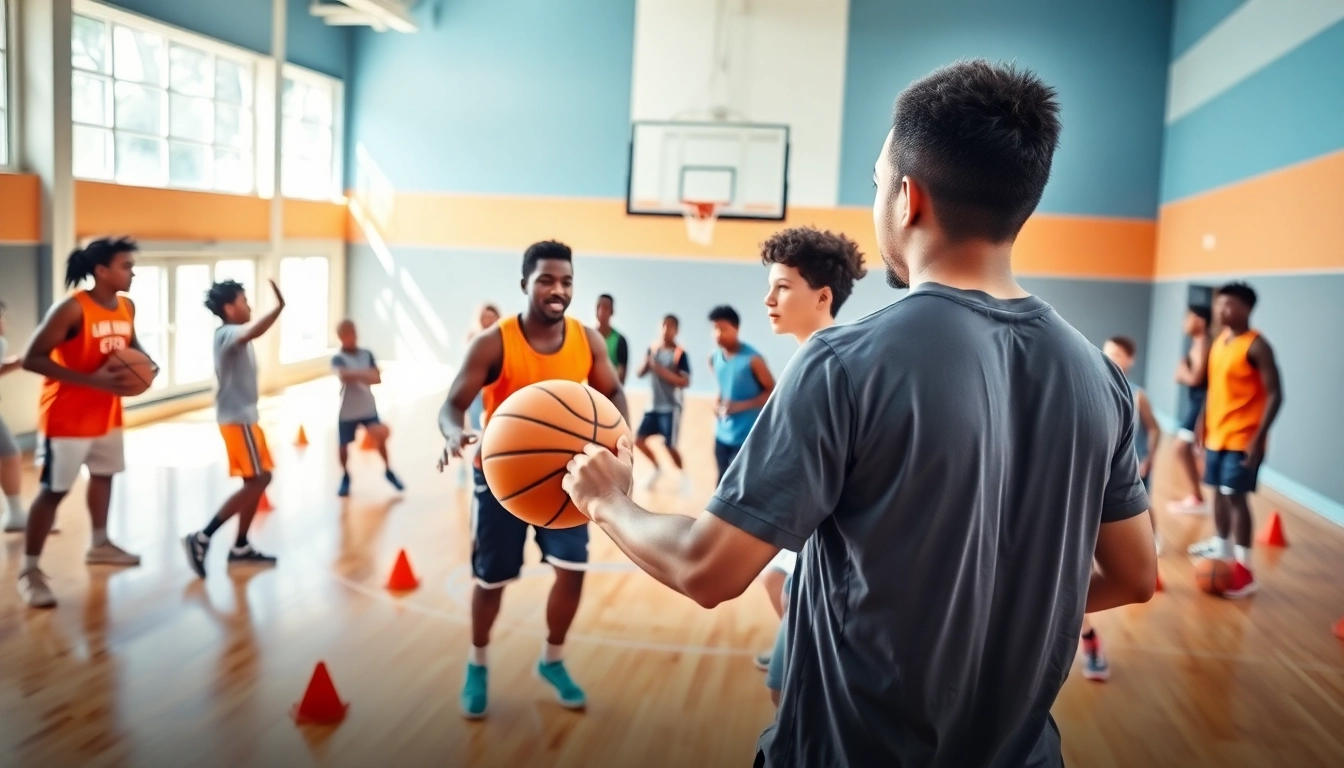Understanding Basketball Training Programs
Basketball is a sport that relies heavily on skill, strategy, and physical conditioning. For players looking to improve their game, understanding the role of best basketball training programs is crucial. These programs not only enhance individual skills but also build teamwork, discipline, and resilience. Let’s dive deeper into what basketball training programs entail, their importance, and the various types available to players.
What is a Basketball Training Program?
A basketball training program is a structured regimen designed to improve a player’s skills and physical conditioning. It typically includes drills, physical fitness routines, and basketball-related exercises. These programs can be tailored to various skill levels, from beginners to advanced players, and often focus on specific aspects of the game, such as shooting, ball handling, defense, or overall game strategy. Understanding the components of these training programs is essential for getting the most out of them.
Importance of a Structured Training Program
Structured training programs provide a roadmap for players to follow, ensuring they practice efficiently and effectively. The importance of these programs can be highlighted in several key areas:
- Skill Development: Players learn and refine skills systematically, making steady progress over time.
- Injury Prevention: Programs often incorporate fitness elements that strengthen muscles and improve flexibility, thereby reducing the risk of injuries.
- Mental Growth: Developing a consistent training routine helps build mental toughness, discipline, and strategic thinking required during competitive play.
Types of Basketball Training Programs Available
There is a wide array of basketball training programs available, catering to different aspects of the game. Here are some common types:
- Individual Skills Training: Focuses on personal skill enhancement through personalized drills and coaching.
- Group Training Sessions: Involve multiple players working together, fostering teamwork while honing skills.
- Off-season Conditioning: Programs designed to maintain physical fitness and skill retention during breaks from competitive play.
- Online Training Courses: Digital platforms that offer video tutorials, drills, and interactive sessions for remote learning.
Key Features of the Best Basketball Training Programs
With so many options available, it’s essential to identify what sets the best basketball training programs apart. Here are some key features to look for:
Individualized Skill Development
The best programs are those that understand and cater to the individual needs of players. This includes assessing a player’s current skill level, identifying weaknesses, and creating a tailored training regimen that targets those areas. Personalized drills and feedback from knowledgeable coaches can drastically improve a player’s capabilities.
Access to Experienced Coaches
Having access to coaches with experience in professional or collegiate basketball can make a significant difference in a player’s development. These coaches can provide valuable insights into techniques, strategies, and the mental aspects of the game. Additionally, they can guide athletes through complex drills and offer instant feedback during training sessions.
Utilizing Technology and Analytics
As the game of basketball evolves, so does the technology used to train players. The best programs now employ video analysis, performance tracking, and biomechanics technology to provide players with a comprehensive view of their progress. This data-driven approach allows players and coaches to pinpoint areas for improvement and track development over time effectively.
Choosing the Right Program for Your Needs
Selecting the most suitable basketball training program involves careful evaluation of several factors. Here’s how to choose wisely:
Evaluating Your Current Skill Level
Before enrolling in a program, it’s crucial to assess your current skills. Are you a beginner looking to learn the fundamentals, or an advanced player aiming to refine specific techniques? Many programs offer skill assessments which can guide you toward the most appropriate level of training.
Determining Your Training Goals
Your training goals can significantly influence your choice of program. Are you looking to improve your shooting accuracy, increase your vertical jump, or develop better passing skills? Pinpointing your primary objectives will help streamline your search for the best training fit.
Researching Program Reputations
Success Stories from Top Basketball Training Programs
Many top basketball training programs boast impressive success stories, showcasing how their training methods have helped players excel. Here’s a closer look at some notable case studies and their impacts:
Case Studies of Player Development
Programs like Pure Sweat Basketball and Evolution Basketball Training have produced numerous success stories, with athletes moving on to play at collegiate or professional levels. These case studies often highlight specific training methodologies and the transformational journey of dedicated players who pushed their limits through structured training.
Impact of Training on College Recruitment
Many players see significant improvements in their skills and game IQ as a result of participating in training programs. These improvements can translate directly to better visibility during college recruitment processes. Coaches often look for players who not only display raw talent but also demonstrate a commitment to development and improvement.
Testimonials from Athletes
Listening to testimonials from former athletes can provide insight into the quality of a training program. Many successful athletes credit their training programs as pivotal stepping stones in their basketball journeys, emphasizing the expertise of their coaches and the effectiveness of the training regimens they followed.
Maximizing Your Training Experience
To truly benefit from your basketball training program, maximize your training experience with these best practices:
Setting Realistic Goals and Expectations
Setting realistic, achievable goals is crucial. While ambition is great, it’s essential to have attainable benchmarks for your progress. This could mean improving your shooting percentage by a few points, increasing your assist-to-turnover ratio, or enhancing your speed. Keep your goals in sight but remain flexible, understanding that progress is often incremental.
Incorporating Nutrition and Recovery
Physical fitness is only one half of the training equation. Nutrition plays a vital role in player performance. Fueling your body with appropriate nutrients will enhance your energy levels and aid recovery. Additionally, implementing proper recovery protocols, such as rest days, stretching, and hydration, is key to preventing injuries and maintaining peak performance levels.
Tracking Progress Effectively
To assess whether you’re meeting your goals, implementing a tracking system is beneficial. Keeping a training journal or using apps designed to monitor performance can help you visualize progress and identify areas needing further focus. Regular check-ins with your coach can also provide external perspectives on your development.
Conclusion
Enrolling in a basketball training program is an investment in your athletic future. By understanding the importance of structured training, evaluating options carefully, and maximizing your experience, you position yourself for success. Remain dedicated, be proactive in seeking feedback, and continually adapt your training regimen to meet your evolving needs. Whether you aspire to play at a higher competitive level or simply to excel as a recreational player, the right program can pave the way toward achieving your basketball goals.



